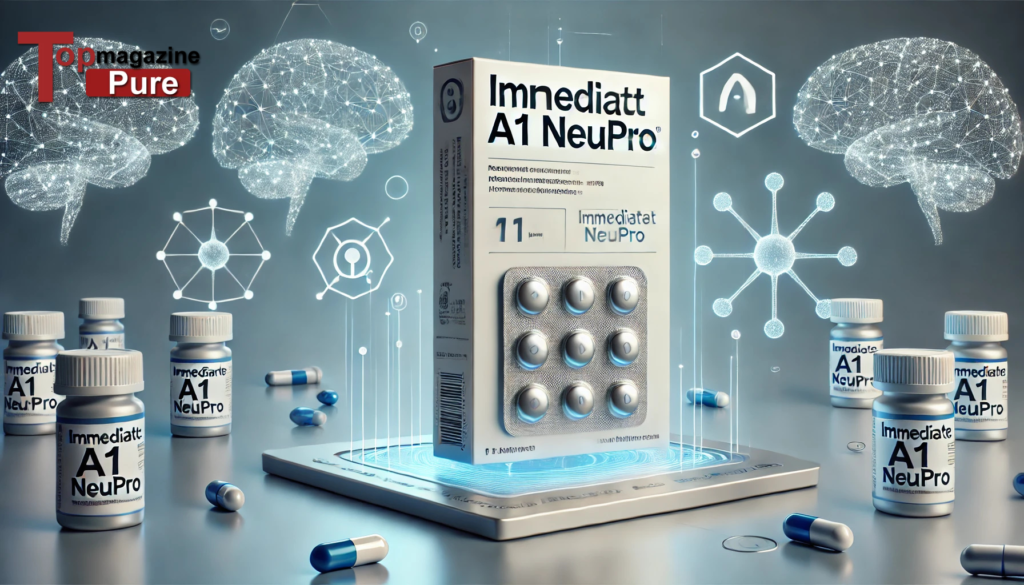Introduction to Immediate A1 Neupro
Immediate A1 Neupro has recently gained attention in neurological treatments, particularly its rapid action in alleviating symptoms associated with various disorders. As a result, it has become a subject of interest for both healthcare professionals and patients seeking effective management strategies for conditions like Parkinson’s disease, restless leg syndrome, and neuropathic pain.
Understanding Neurological Disorders
Neurological disorders comprise a broad range of conditions that affect the nervous system, leading to various symptoms that can significantly impact a person’s quality of life. These disorders can affect the brain, spinal cord, and peripheral nerves, with common examples including:
- Parkinson’s Disease: This progressive neurological disorder is characterized by tremors, stiffness, and difficulty with balance and coordination. Managing Parkinson’s is crucial for maintaining functionality and independence in daily life.
- Restless Leg Syndrome (RLS): RLS causes uncomfortable sensations in the legs, often leading to an uncontrollable urge to move them. This can severely disrupt sleep and impact overall well-being.
- Neuropathic Pain: This type of pain arises from damage to the nerves and can be chronic and debilitating, affecting daily activities and mental health.
Effective treatment options are essential for individuals living with these conditions to help manage symptoms and improve their overall quality of life.
The Mechanism of Action Behind Immediate A1 Neupro
Immediate A1 Neupro functions by interacting with neurotransmitters in the brain that regulate movement, mood, and pain perception. Here’s a closer look at its mechanisms:
- Dopaminergic Activity: By enhancing dopamine signaling, Immediate A1 Neupro aims to alleviate motor symptoms in patients with Parkinson’s disease, where dopamine levels are typically diminished.
- Serotonin Modulation: This treatment may also affect serotonin pathways, which can positively impact mood and emotional well-being. The regulation of serotonin is essential for patients who experience mood swings or depression alongside their neurological conditions.
- Synaptic Communication: Immediate A1 Neupro seeks to improve communication between neurons, potentially restoring normal function in areas affected by neurological disorders. This can lead to better overall symptom management.
Advantages of Immediate A1 Neupro
The introduction of Immediate A1 Neupro into treatment regimens offers several potential benefits:
- Rapid Symptom Relief: One of the most notable advantages is its ability to provide fast-acting relief for acute symptoms. Patients may experience significant improvements shortly after starting treatment, which can be crucial for those with debilitating symptoms.
- Streamlined Medication Regimens: For many patients, Immediate A1 Neupro may reduce the need for multiple medications, simplifying their overall treatment plans. This can enhance adherence and make it easier for patients to manage their health.
- Improved Daily Functioning: Many users report enhancements in their ability to perform daily activities and engage in social interactions due to more effective symptom management.
Potential Side Effects and Safety Considerations
As with any medical treatment, patients need to be aware of potential side effects associated with Immediate A1 Neupro. Some individuals may experience:
- Gastrointestinal Issues: Mild nausea or digestive upset can occur, especially during the initial stages of treatment. These symptoms are often manageable and tend to improve over time.
- Fatigue or Drowsiness: While some patients find Immediate A1 Neupro energizing, others may feel more fatigued, particularly as their bodies adjust to the treatment.
- Emotional Changes: Some users may notice shifts in mood or emotional state, especially those with pre-existing mood disorders. Close monitoring by healthcare professionals is recommended to manage these changes effectively.
Comparing Immediate A1 Neupro to Traditional Therapies
Immediate A1 Neupro stands out when compared to more traditional neurological treatments. Here are some of the ways it differs:
- Speed of Action: Traditional medications often take longer to achieve therapeutic effects. In contrast, Immediate A1 Neupro aims to provide quicker relief, making it an appealing choice for patients needing immediate symptom management.
- Side Effects: Many older treatments have more pronounced side effects, whereas it has a potentially more tolerable profile, enhancing patient adherence to the treatment plan.
- Holistic Management: By addressing both motor and emotional symptoms through its mechanisms, Immediate A1 Neupro offers a more integrated approach to treatment than many traditional therapies that may focus on only one aspect of a disorder.
The Future of Immediate A1 Neupro in Clinical Practice
The ongoing research surrounding Immediate A1 Neupro holds promise for its application in various neurological and psychiatric conditions. Current studies are investigating its efficacy in treating:
- Cognitive Impairments: Research explores whether Immediate A1 Neupro could positively affect cognitive decline associated with conditions like Alzheimer’s, potentially improving memory and cognitive function.
- Combination Therapy Approaches: Ongoing studies aim to understand how it can be effectively combined with other treatments to optimize outcomes for patients suffering from complex neurological disorders.
As research progresses, Immediate A1 Neupro may play an increasingly important role in managing neurological conditions, offering hope to many patients and healthcare providers.
Patient Testimonials and Real-World Experiences
Feedback from patients who have used Immediate A1 Neupro has generally been positive. Many individuals report significant improvements in their quality of life, including:
- Enhanced Mobility: Patients with Parkinson’s disease have noted decreased tremors and improved motor control, allowing them to be more independent in their daily activities.
- Better Sleep Patterns: Those suffering from restless leg syndrome often report that Immediate A1 Neupro has contributed to more restful sleep, reducing nighttime discomfort and restlessness.
- Mood Stability: Many users express feeling more emotionally balanced and stable, attributing these improvements to the treatment’s effect on serotonin levels.
These patient experiences highlight the transformative potential of Immediate A1 Neupro in enhancing the management of neurological disorders.
Conclusion
Immediate A1 Neupro represents a significant advancement in the field of neurological treatment, offering patients a fast-acting and effective option for managing various symptoms associated with disorders like Parkinson’s disease, restless leg syndrome, and neuropathic pain. By targeting critical neurotransmitter systems in the brain, this treatment provides hope for better symptom relief and an improved quality of life for many individuals. As research continues to explore its full potential, Immediate A1 Neupro may become a cornerstone of modern neurological care, offering new pathways for effective treatment and management of challenging conditions.







